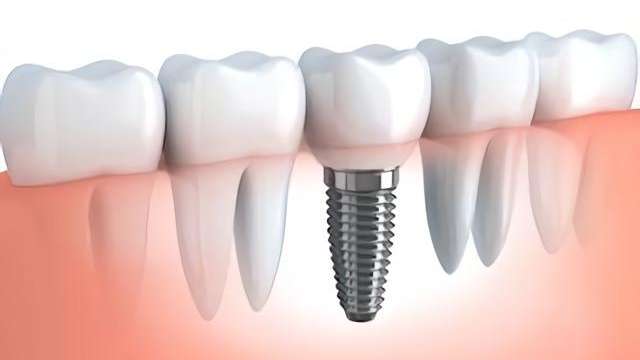Oral Surgery
 There are many reasons you may be in need of oral surgical treatment. Teeth can become cracked or broken, crowded or impacted, or simply too decayed to save. You may be suffering from a temporomandibular joint disorder (TMJ/TMD) or bruxism (grinding your teeth).
There are many reasons you may be in need of oral surgical treatment. Teeth can become cracked or broken, crowded or impacted, or simply too decayed to save. You may be suffering from a temporomandibular joint disorder (TMJ/TMD) or bruxism (grinding your teeth).
Whether you need an extraction, a mouth guard, or evaluation and treatment for TMJ, Herndon dentist Dr. Imaney Ahmad is ready to help.
Extractions
We’d prefer to preserve your teeth whenever possible, but sometimes a tooth needs to be extracted. Whether you have impacted wisdom teeth, a broken or decayed tooth causing you pain, or teeth causing overcrowding in your jaw, we offer safe and gentle dental extractions to improve your oral health.
During your extraction, we'll make sure the area is numb so you don't feel any pain. The tooth or teeth needing extraction will be removed as carefully as possible, and stitches may be utilized if necessary. Once the teeth are pulled, Dr. Ahmad will review how to care for your extraction site at home, as well as discussing restoration options such as a dental bridge, removable dentures, or dental implants.
It's important to care for your extraction site properly. Plan to eat soft foods for a few days after you have teeth pulled. Don't brush or rinse the area on the first day. After the first day, we recommend a gentle rinse with warm saltwater several times a day to keep the site disinfected and help minimize inflammation.
Do I Have TMJ?
Temporomandibular joint disorder, known as TMJ or TMD, refers to problems with the jaw and the jaw joint. This disorder can be caused by many things, including accident or injury such as whiplash, grinding or clenching your teeth, arthritis in the jaw joint, or stress.
TMJ is more common in women, and usually occurs in those between 20 and 40 years of age. The primary symptoms of TMJ include:
- Pain or tenderness of the face, particularly around the jaw or ear, while chewing, speaking, or opening your mouth wide
- Inability to open your mouth wide or a jaw that gets “stuck” in the open or closed position
- Clicking/popping noises when you chew or open and close your mouth, sometimes accompanied by pain.
- Swelling on the side of your face
If you are diagnosed with TMJ, we will review your options. TMJ can be controlled through modification of habits, home treatments, and dental interventions such as mouth guards and corrective treatments to help balance a misaligned bite.
 Treatment for Bruxism
Treatment for Bruxism
You may not even realize you grind your teeth. Bruxism frequently occurs while sleeping, and is usually noticed by a sleeping partner or your dentist first. Some signs to watch for include excessive wear on your teeth, particularly the molars; pain or tenderness when you bite; jaw pain; headaches; or a grinding noise while you sleep.
If you suffer from bruxism, it's important to treat it, as it can permanently damage your teeth and jaws. We offer night guards for bruxism at our Herndon dental office. These custom-molded plastic guards fit into your mouth and help protect your teeth and minimize tooth grinding while you sleep.
Oral Surgical Treatments to Improve Your Health
If you are in need of an extraction or have any of the above symptoms of bruxism or TMJ, contact our office today to schedule a consultation. You'll be glad you did!



